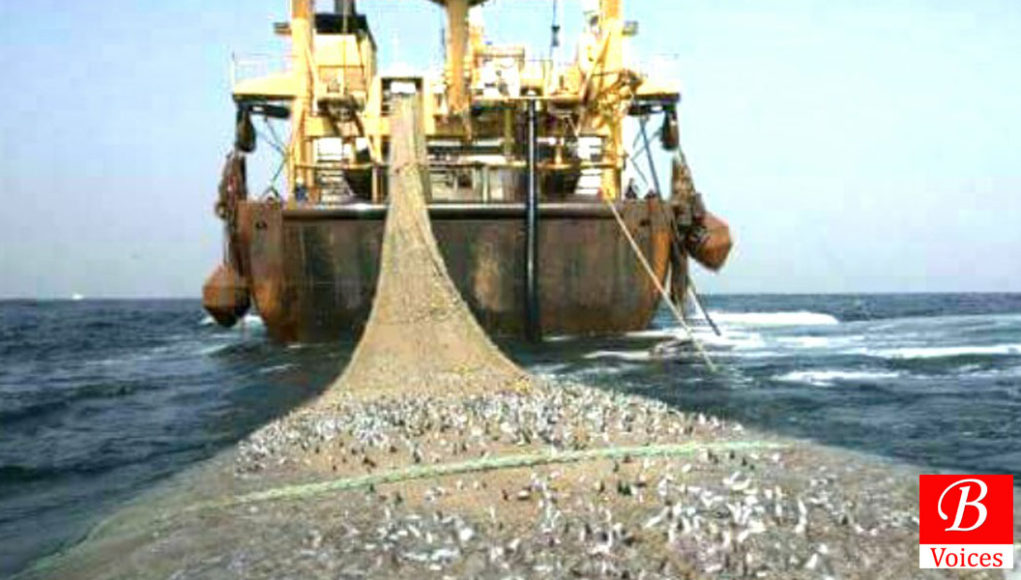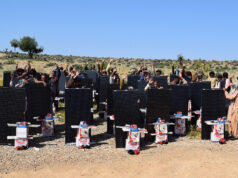Suleman Hashim
In Pakistan, approximately 1.5 million people rely on fish industry for their livelihood. Pakistan has a stretched coastline of around 1100 kilometres which is inhabited by fishermen living in small ghettos along with small and big cities lying across the coastline. Balochistan retains a major part of coastline which is stretched on 750 kilometres whereas rest of the coastal areas lie in Sindh where fishery is considered to be a significant industry. This industry accounts for a profound income for exchequer.
For few decades, the inept fishing methods such as use of small and narrow nets for fishing and waste of small fish known as ‘trash fish’ have brought industry much loss. By employing such methods, expensive fishes go to trash. For last five years EUROP has stopped fish export owing to the lack of expertise to stop the trend of ‘trash fishing’ and unsuitable methods employed with fishing. Professionals associated with fishery believe that in Pakistan, the employed methods for fishing are cause of 60% ‘trash fishing’.
In 1972, during Sardar Atta Ullah Mengal’s government, fishing launches defied the enshrined rules which allowed the fishing launches to fish within 12 nautical miles in ocean. Now, the circle of fishing has been expended to 20 nautical miles which has also become a matter of concern as alien launches digress the boundaries and fish illegally as close to the coast as within 5 to 6 nautical miles.
Most of the fishermen have quite legitimate concerns. Fishermen are mostly poor and paid meagre wages. In case of storms and severe weather conditions, fishermen cannot go for fishing which keeps them burying under debt. Apart from unexpected weather conditions, lack of cold fish storage facility at Gwadar, Pasni, Ormara and Dam harbours doubles the woes of fishermen. Due to Unavailability of cold storage and packing facilities, fishermen are compelled to sale fish at cheap prices as the fish gets stale with taking more time to reach market. Furthermore, fishermen are coupled with the problems of not having standard equipment for fishing.
Illegal fishing is another hurdle for the fishermen. The illegal boats from Sindh come across and are indulged in illegal fishing. Agents of these boats are present at ports of Gwadar, Pasni, Ormara and Dam which work as tipsters who help them flee any possible risk of arrest and inform them via wireless about any intended action against the boat owners.
However, if such boats and launches are found finishing illegally, they are confiscated and caught fish is sold on cheap prices; yet there is no law available to punish such illegal act of fishing. Material available in such boats and launches is auctioned. But, auction also shows the monopolies of administration where agents of these boats and launches owners are already present. In fact, given the long stretched coastline of Balochistan, the Balochistan Fishery has been ill equipped to curb illegal fishing within its coastal limits.
Fishermen, owner of small fishing boats and launches, often resort to complaints about illegal fishing by the boats crossing the limits of Balochistan coastline. These ships and boats are equipped with modern facilities and fish in the illegal limits leaving the local fishermen in a distress.
Now the question arises, why do the political parties of Gwadar seem unsuccessful to take the issue to the Assembly? Though the nationalist parties in Gwadar have raised this issue many times, yet the presence of strong social Fisher Folk is unfelt with regard to raising the issue.
Similarly, local fishermen of Gwadar also seem concerned about the frequent VIP visits in the wake of CPEC. They are kept confined to their respective areas during any VIP visit given the security risks. Fishermen fear the annexation of East Bay fish harbour with Gwadar port which is a source of their livelihood. The development work in connection to CPEC such as construction of Gwadar Super High Way and subsequent VIP visits are feared to become an obstruction for the fishermen in future.
Recently, containers carrying 7.1 ton fish reached China from Gwadar. If businessmen in Gwadar get easy loans from banks, fish companies could be established in Gwadar, too, which will ease poverty in return. It is high time government came forward and redressed issues of poor fishermen in Gwadar and invested unemployed youth with skills and education about marine life in order to secure jobs in future.
Disclaimer: Views expressed in this article are those of the author and Balochistan Voices not necessarily agrees with them.
Share your comments!








